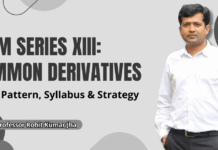As a High-Net-Worth Individual (HNI), you have devoted years to building your wealth, making calculated investments, and securing a strong financial future. But what happens when it’s time to pass it on? Many think their assets will be transferred to their loved ones hassle-free, but without the right approach, the process can become complicated. Legal obstacles, tax liabilities, and family conflicts can arise, which can disrupt the legacy you intend to leave behind. This is why estate planning matters.
Understanding estate planning
So, what is estate planning exactly? Simply put, it is the process of passing down your assets and investments to the next generation. It enables you to decide who will inherit your wealth, be it properties, vehicles, businesses, and digital investments, and how it will be distributed after your demise.
Common estate planning mistakes you must avoid
Watch out for these major estate planning mistakes and learn how to prevent them:
Waiting too long to plan
As an HNI, wealth management and business affairs keeps you occupied, which can make estate planning easy to postpone. However, without a proper estate plan, your assets may get stuck in legal disputes, delays, and heavy taxes, with courts deciding who inherits them.
So, start as soon as possible and work with a trusted estate planner to create a detailed plan. Make sure your will, trusts, and assets match your financial goals.
Failing to update wills and beneficiaries
Estate planning is not a one-time activity but a continuous process. Many HNIs create an estate plan early in life but fail to revise it as their circumstances change. Life events like marriages, divorces, births, or business acquisitions can make an old estate plan obsolete. Without revisions, outdated executors, incorrect beneficiary names, or irrelevant asset distributions may lead to disagreements and legal proceedings.
So, review your estate plan periodically, ideally every year, and modify your will, trust, or beneficiary designations as needed.
Ignoring tax implications
Inadequate tax planning can cause the erosion of wealth before it reaches the next generation. Even though India doesn’t have any inheritance tax, there are capital gains, income tax, and foreign tax laws influencing asset transfers. Failing to use tax exemptions or structure wealth through trusts can create liabilities that could have been easily avoided.
Professional estate planning services help optimise tax efficiency by structuring trusts, using exemptions, and planning cross-border asset transfers. Careful planning means that your loved ones inherit wealth, not unnecessary tax burdens.
Neglecting digital assets
It is common for HNIs to hold significant wealth in digital forms, such as investment accounts, cryptocurrency, and even online businesses. Without solid estate planning, these assets may be lost, locked, or mismanaged after you are no longer around.
A strong estate plan must include all digital assets. You can even appoint a digital executor to make sure these assets are transferred to the intended heirs according to your wishes.
Not planning for incapacity
Have you considered who will handle your finances and medical decisions if you suddenly lose the ability to do so? Many believe their spouse or children can automatically step in, but if there is no legal authorisation, they may face court delays, frozen accounts, and medical uncertainties. This can lead to mismanaged assets, unpaid taxes, and unwanted medical interventions.
So, make sure your estate plan includes a living will that outlines your end-of-life decisions and a healthcare power of attorney to enforce them.
Key takeaways
It is evident that estate planning is not just about transferring wealth as per your wishes. It’s also about protecting the financial legacy you have worked so hard to build while minimising legal entanglements for your heirs. So, make sure to avoid common yet costly estate planning mistakes like waiting for too long, forgetting to revise your will, ignoring tax-efficient strategies, neglecting digital assets, and not planning for incapacity.
Preventing these estate planning mistakes today means saving your heirs from financial and legal troubles in the future.





































